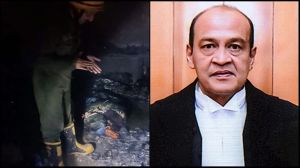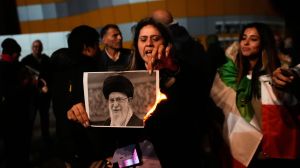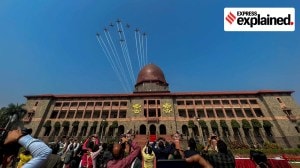145;Cleansing146; Colombo
Lanka government8217;s order on evicting Tamils is appalling, and LTTE must be delighted

Considering that Mahinda Rajapakse gained the presidency of Sri Lanka in 2005 with a shrill campaign promise to review the peace process, polarisation in the country8217;s ethnic conflict was always on the cards. Especially since LTTE leader Prabhakaran was seen to be finding excuses to junk the 2002 Norway-brokered ceasefire. Recent months of heightened offensive by both sides 8212; 5,000 people are estimated to have been killed in the last 18 months 8212; bear out those apprehensions. But it is the Sri Lankan government8217;s latest move to compulsorily evict Tamils from Colombo that threatens to destroy whatever shreds of hope there remain for some kind of reconciliation. A day after the authorities began to forcibly send hundreds of 8216;jobless Tamils8217; living in the city8217;s lodges to LTTE-held areas of the island, Sri Lanka8217;s Supreme Court ordered a halt on the evictions. Nevertheless, the onus is now on Rajapakse to allay the apprehensions he has raised by being seen to be reaching out to the Tamil minority caught between government offensives and LTTE atrocities.
To understand the possible repercussions of a government seemingly shining the searchlight on members of the minority community, consider Sri Lanka8217;s demography. Colombo, the country8217;s political and commercial centre, has almost equal numbers of Sinhalas and Tamils. It is for both these communities a reminder of the problem of operationalising outright separation of populations 8212; as envisaged by the LTTE in its demand for a separate homeland and by Sinhalese chauvinists aiming to isolate the ethnic minority. This is why civil society groups here have labelled the eviction drive 8212; the next hearing in the Supreme Court is posted for June 22 8212; an attempt at 8220;ethnic cleansing8221;, not merely a civil rights issue.
It is good that disgust for the eviction drive has been across communities. But this government misadventure is, in the longer term, a reminder of the dangers of overlooking the gross violations of the ceasefire, which still exists on paper. International 8212; and given this country8217;s unique leverage, especially Indian 8212; pressure must be urgently applied for a cessation of hostilities.
- 01
- 02
- 03
- 04
- 05































